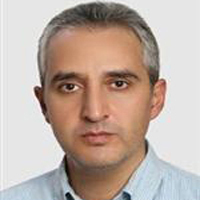Investigating the effect of the initial distribution of particles in modeling the water level variations caused by the motion of a sliding object on a sloped surface using SPH method.
The initial position of particles in Smoothed Particle Hydrodynamics (SPH) method can play an important role in reducing numerical errors and its efficiency. In this research, based on water level variation modeling, and using previous modeling experiences with SPH method, six common particle distributions as: SC square distribution, Triangular distribution, distribution based on WVT algorithm, distribution based on Greedy algorithm, hexagonal distribution and distribution based on Fibonacci algorithm have been investigated. Based on the results of the pressure, velocity, and the free surface level at different times according to the physical model, the average total modeling error for each of the models (the difference between the values obtained from the modeling and the results of the laboratory model) has been presented. According to the obtained results, it was determined that the two hexagonal and Fibonacci particle distributions have the lowest average modeling error (10.2% and 11.1%, respectively). In addition, based on the obtained results, the WVT model has a lower modeling error (about 14%) than the remaining three models, i.e., square, triangular, and Greedy distributions. Therefore, since in this phenomenon, the two initial distributions of hexagonal and Fibonacci particles have less modeling error than other distributions, it is recommended to use these two initial distributions in modeling the water level variation phenomenon using the SPH method.
-
The Effect of Initial Particles Distribution by in Smoothed Particle Hydrodynamic Method in Wave Generation Modeling Based on Laboratory Model
Mahyar Pourlak, *, Hassan Akbari
Civil Infrastructure Researches, -
A New Adaptive Algorithm for the Optimal Distribution of Computational Centers in the Meshless Multiquadric Method
Samira MohammadAlian, Reza Babaee,
Civil Infrastructure Researches,


